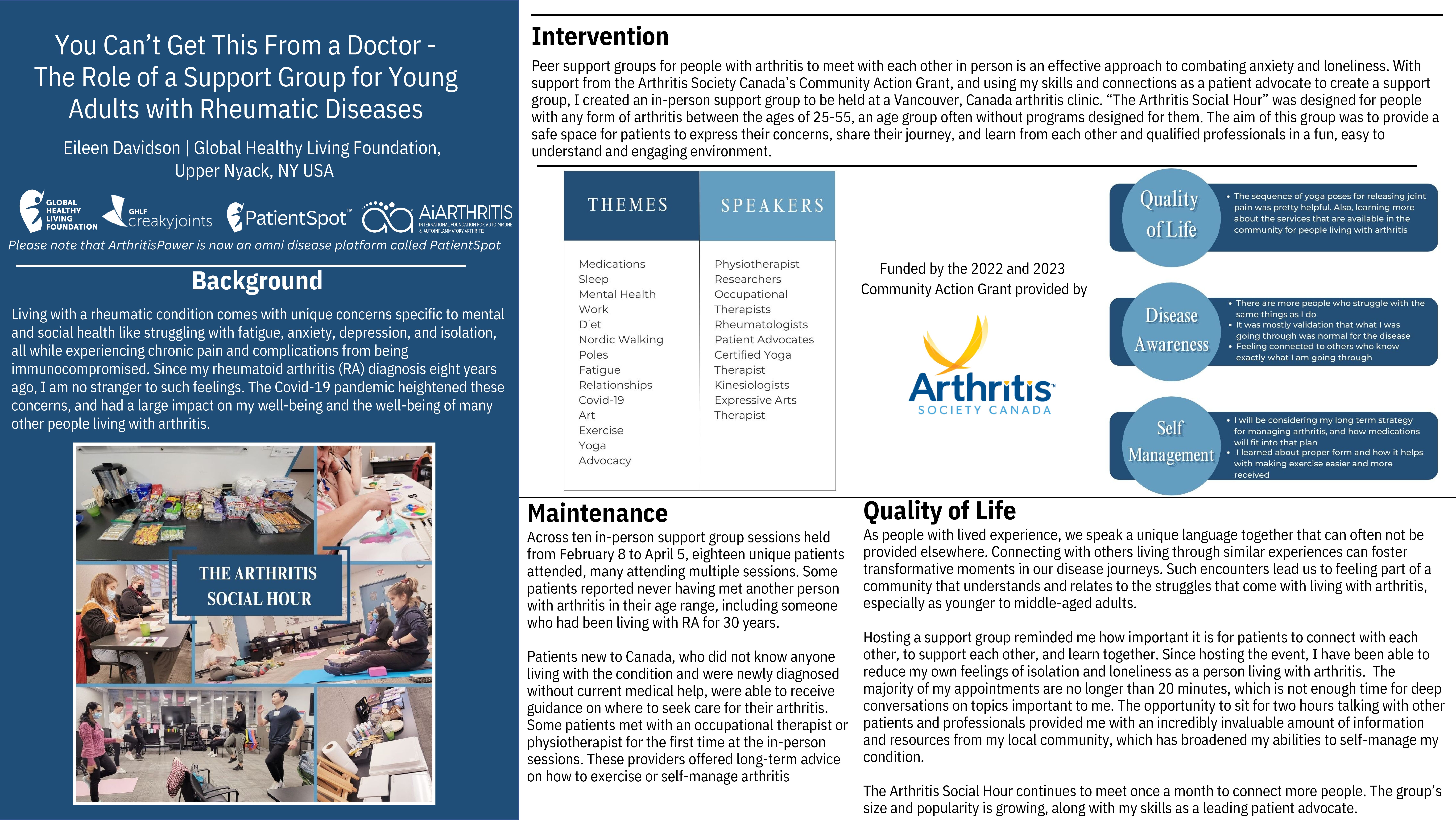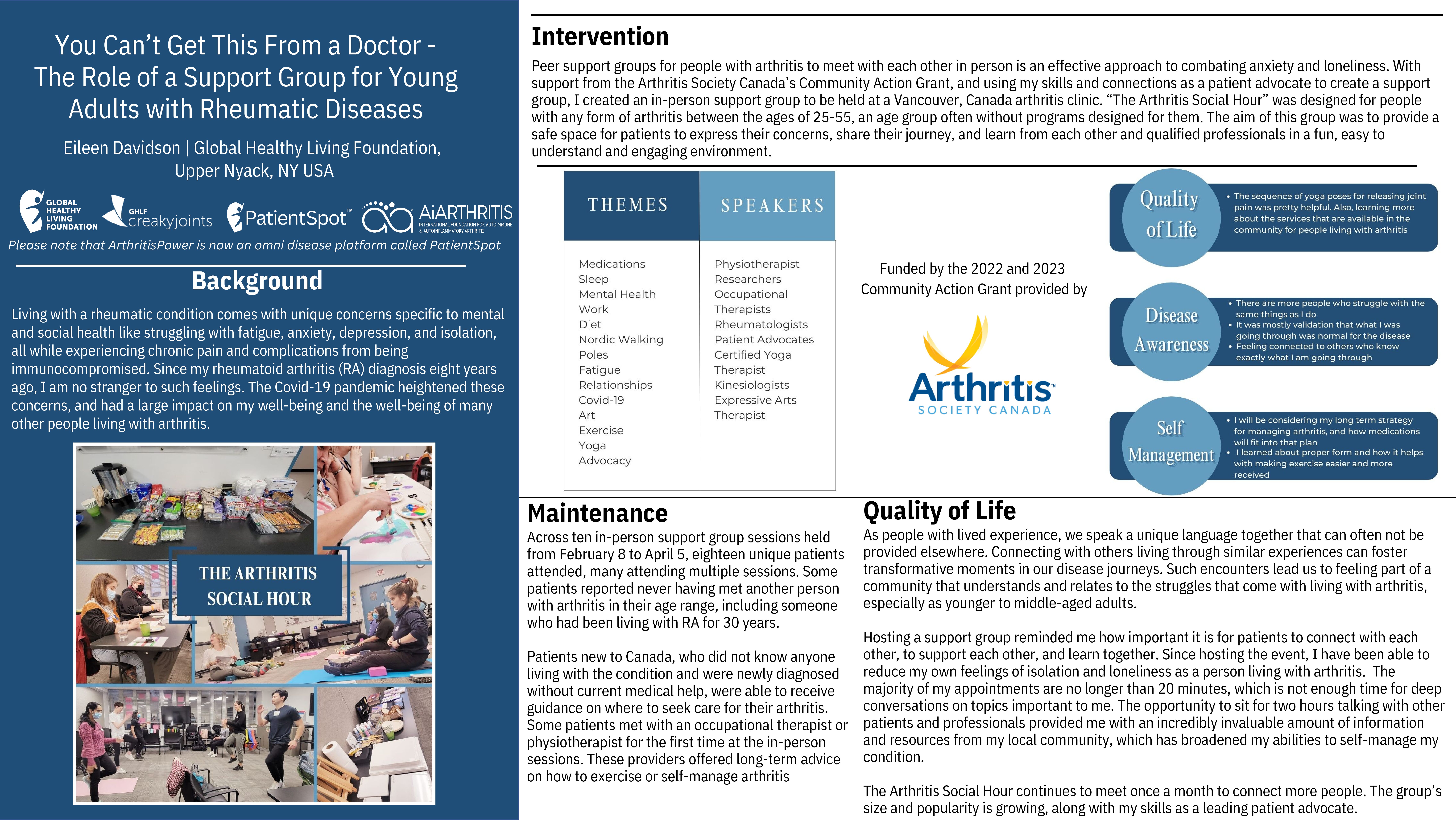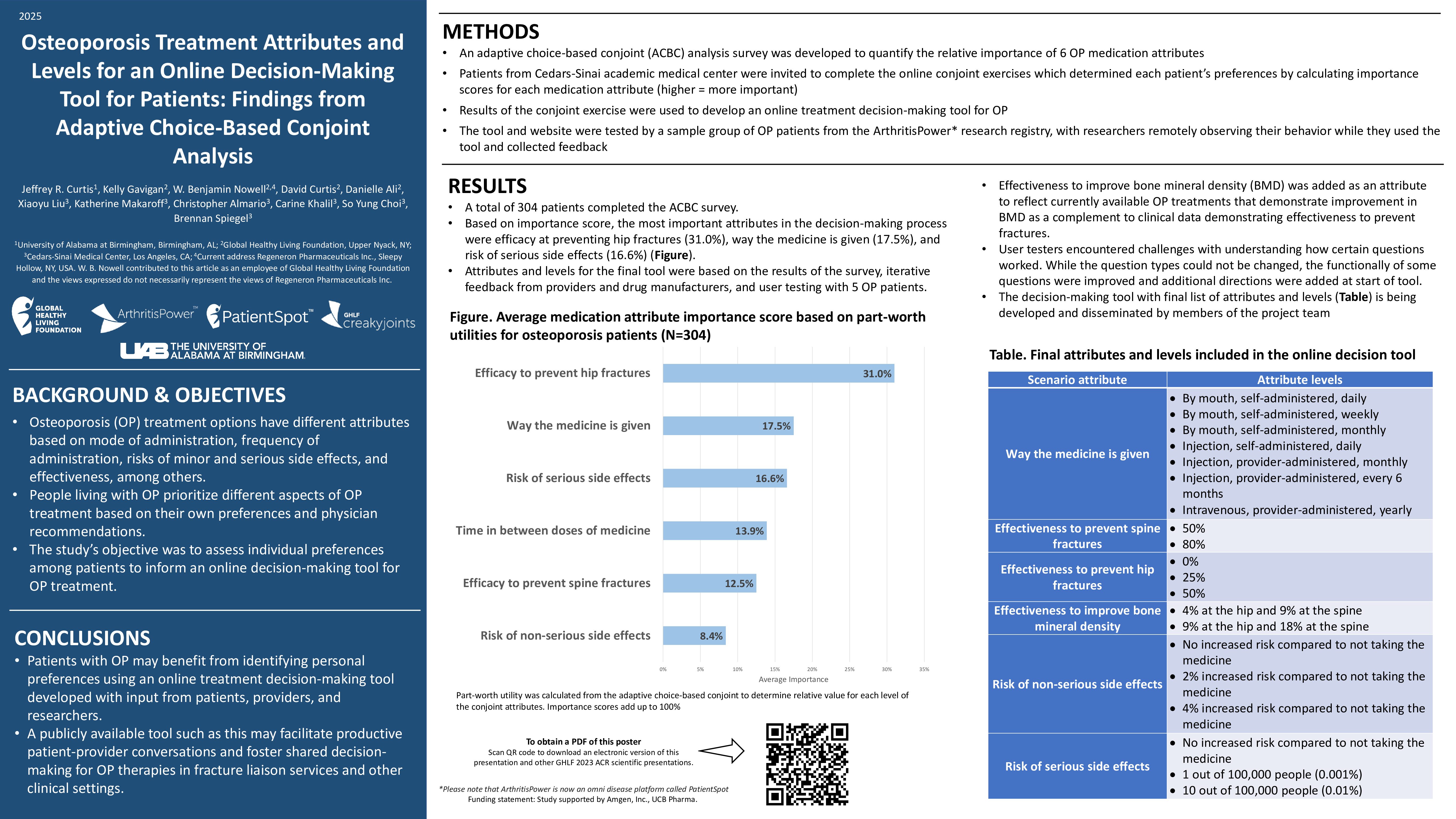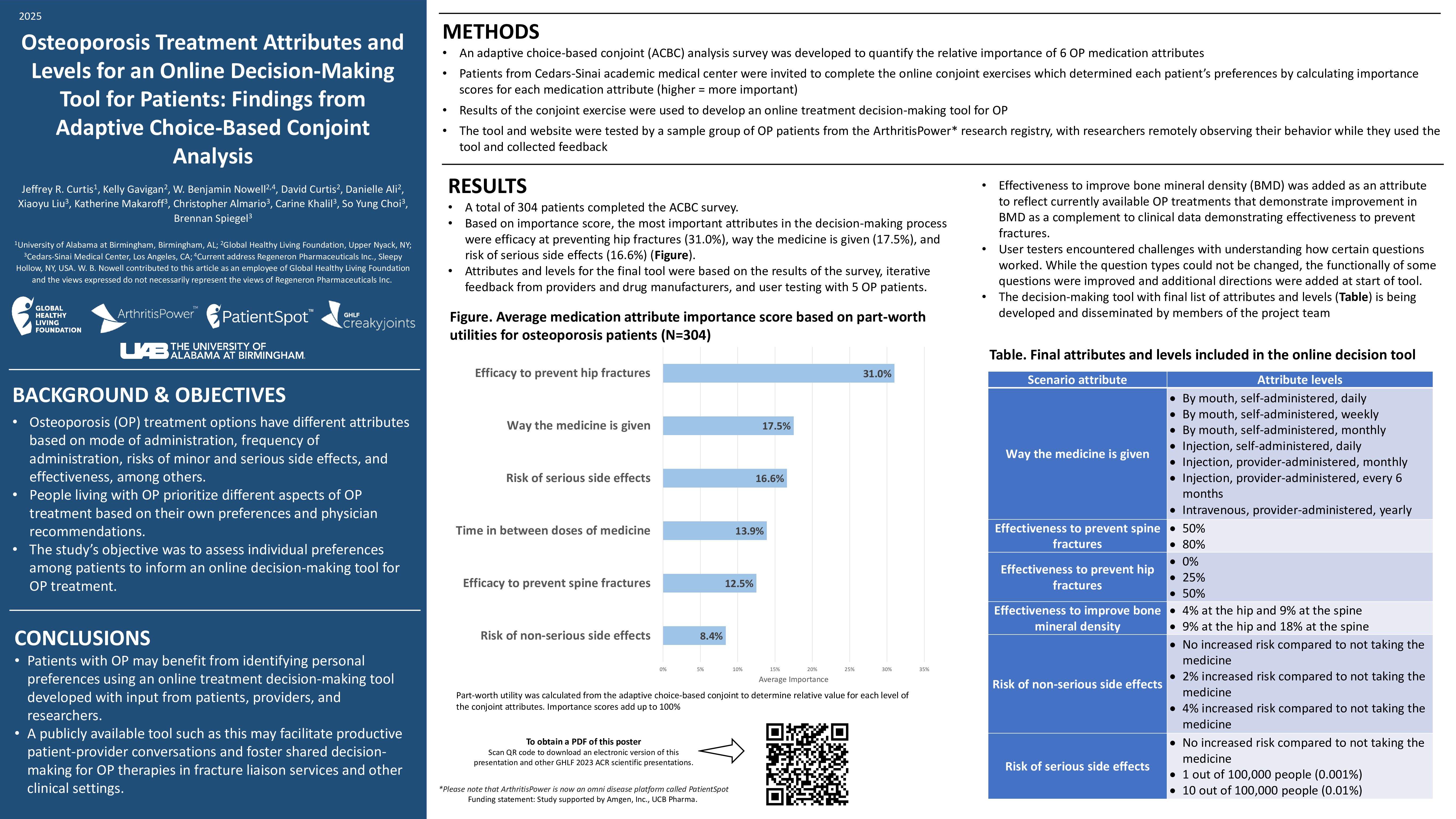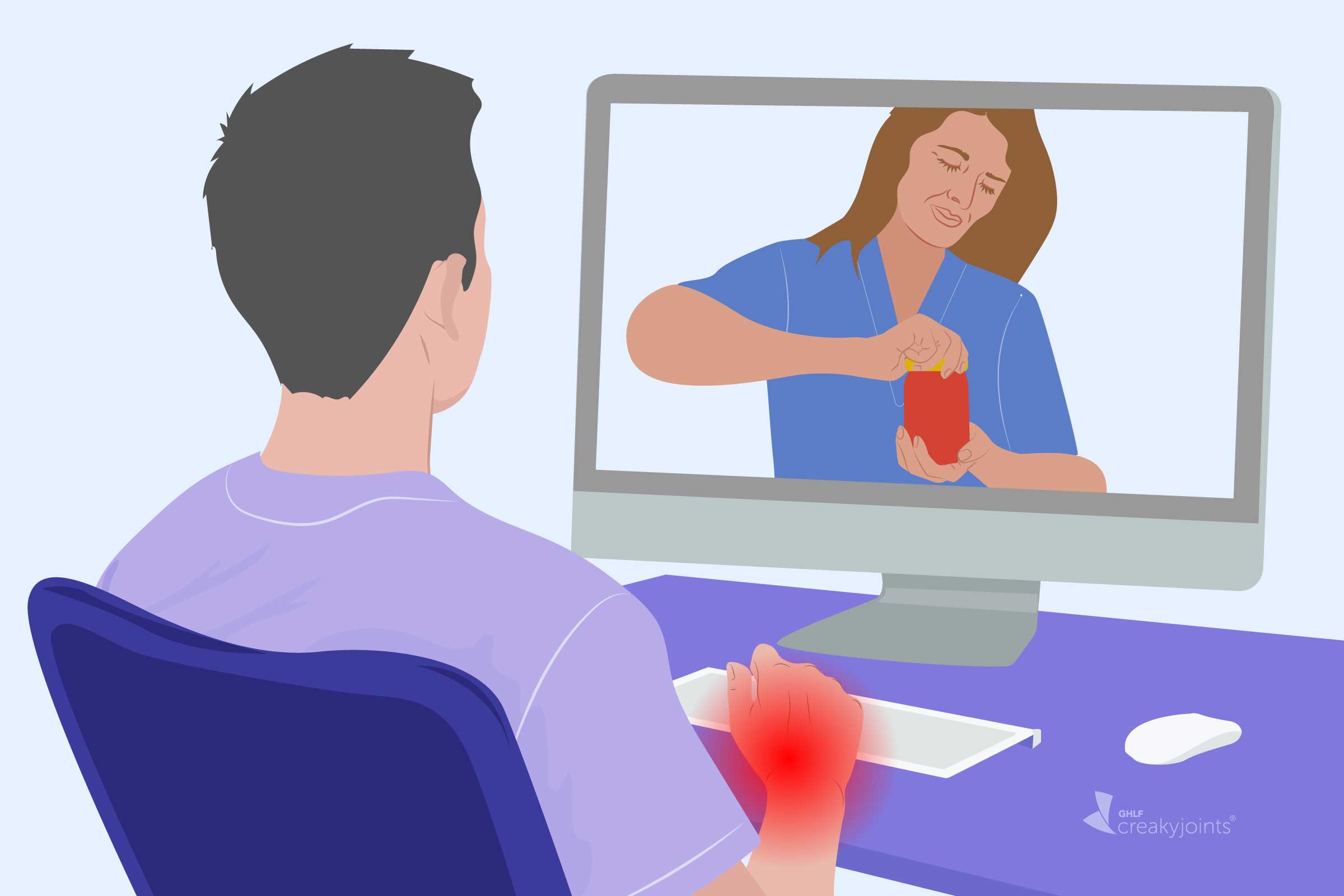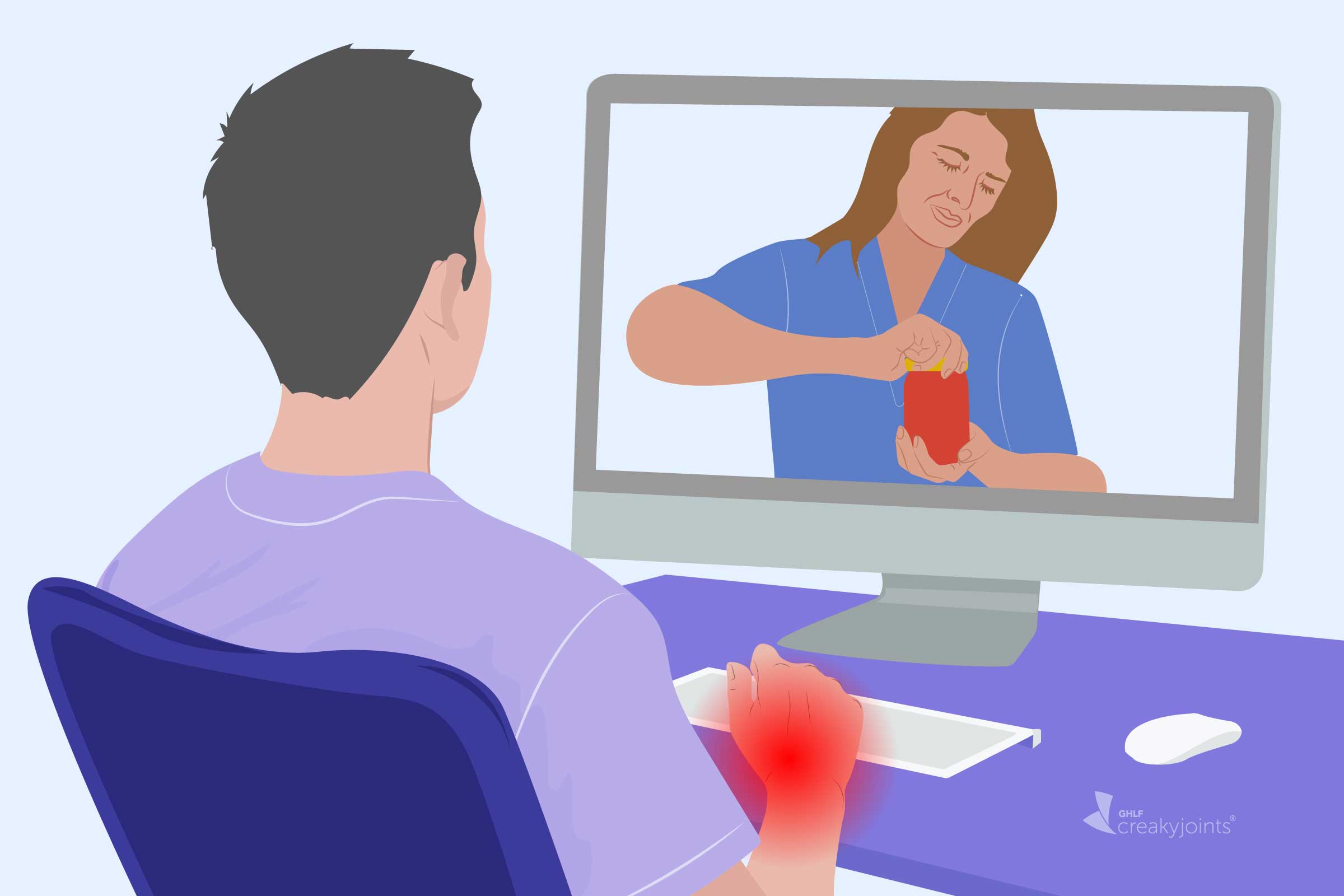Presented by:
- Michael George, MD, MSCE, Assistant Professor of Medicine at the Hospital of the University of Pennsylvania
- Jeffrey Curtis, MD, MS, MPH, Professor of Medicine at the University of Alabama at Birmingham
- Maria Danila, MD, MSc, MSPH Associate Professor of Medicine at the University of Alabama at Birmingham
Managing a chronic autoimmune or systemic inflammatory disease can be challenging on its own. During the COVID-19 pandemic, patients living with chronic conditions may face additional challenges that affect how they manage their disease. This webinar shares some early findings of the Arthritis and Rheumatic Disease COVID-19 Project that studied patients living with arthritis and related conditions from the beginning of the pandemic.
The Arthritis and Rheumatic Disease COVID-19 Project is led by researchers at the Global Healthy Living Foundation (GHLF), University of Pennsylvania, and University of Alabama at Birmingham (UAB). The survey asked people living with rheumatic and musculoskeletal conditions questions about their COVID-19 testing, telehealth visits, choices about immunosuppressive treatments, and where they receive information about COVID-19. This webinar aims to help people living with these conditions make better informed decisions to manage their disease during the COVID-19 pandemic.
Fast Facts from the Webinar
1. Research is required to test the safety and efficacy of any potential COVID-19 vaccines in autoimmune populations
There is a lot of research and testing underway for a potential COVID-19 vaccine. Today, most of the COVID-19 vaccine candidates being studied do not include live vaccines. This should make contracting COVID-19 from a vaccine highly unlikely. However, most vaccine trials are not studying efficacy for people with autoimmune diseases or taking immunosuppressant medication. In general, every vaccine trial is a rigorous process and follows a long phase by phase protocol prior to receiving approval and being licensed. Read more here about how people with underlying health issues may be prioritized for a COVID-19 vaccine.
2. Getting your flu shot this year may be more important than ever
For people living with an autoimmune condition, it is always important to get your flu shot. This year it may be more important than ever. The flu season this year can add to the burden of an already overloaded health system as hospitals and the health care system struggle to respond to cases of COVID-19 alongside flu and other health emergencies. When there are a lot of people requiring care, resources like ventilators and hospital beds get used faster. At some point the number of people requiring care outruns the resources available to care for them. You can help reduce the burden on our health care system by taking protective measures to stay healthy and safe and to keep others around you healthy as well. Further, the risk of contracting both the flu and COVID-19 should not be taken lightly. Speak to your doctor or pharmacist about the flu shot today. It is important to remember that while the seasonal flu and COVID-19 do share some common symptoms, there are ways to tell them apart.
- Typically, a COVID-19 infection is identified by shortness of breath and difficulty breathing. Difficulty breathing is not a symptom often associated with the flu.
- Another key identifier of COVID-19 is the loss of smell and taste.
- Flu symptoms will usually only last a few days to one week, whereas COVID-19 symptoms tend to last longer than a week.
It can be difficult to distinguish the source of overlapping symptoms like fatigue and cough. Fatigue and a flu-like malaise are also often experienced during flares for people living with inflammatory forms of arthritis. As always, remaining in communication with your health care provider is essential and the best way to address concerning symptoms. If you develop any symptoms that seem out of the ordinary, check with your doctor. Read more here about what people with inflammatory arthritis need to know about getting the flu vaccine this year.
3. There are two different types of tests currently for COVID-19: a diagnostic test and an antibody test
- The COVID-19 diagnostic test is a nasal or throat swab test designed to look for active disease in the body. It indicates a current and active COVID-19 infection.
- The antibody test looks for antibodies in your blood. Antibodies, also referred to as immunoglobulins, are a type of protein produced by your immune system to fight infections caused by invaders like bacteria. Your immune system has memory and remembers bacteria and other germs that may have caused a previous infection you fought. This is why antibodies also help to fight future infections caused by the same bacteria your body previously recognized. The antibody test is a blood test to see if you had the COVID-19 disease in the past. It indicates previous COVID-19 infection. Currently we are trying to understand how long you may have immunity or how long you may be protected if you have had COVID-19 in the past.
4. Telehealth provides a great way for patients who live with chronic disease to stay in touch with their doctor and stay on top of their disease
When you receive care from your doctor via a computer or phone or when you have appointments with your doctor using digital technology, it is referred to as telehealth. Telehealth has become much more common during the pandemic because it does not require patients to travel to their doctor’s office to receive care for the management of their disease. Your insurance might have different requirements regarding coverage for a telehealth appointment. The general reaction to telehealth by patients has been very positive. Both patients and providers have expressed satisfaction with the service and appreciate the safety it provides. Furthermore, there may soon be legislation to increase the availability of telehealth across the country. Telehealth appointments may be done via video or audio (phone) only. Read more here about how to prepare for a rheumatology telehealth visit during the coronavirus pandemic.
Get Involved in Arthritis Research
If you are diagnosed with arthritis or another musculoskeletal condition, we encourage you to participate in future studies by joining CreakyJoints’ patient research registry, ArthritisPower. ArthritisPower is the first-ever patient-led, patient-centered research registry for joint, bone, and inflammatory skin conditions. Learn more and sign up here.





